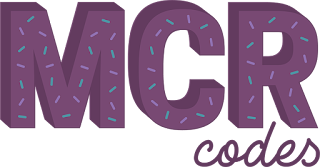Week 9 to 12 - Learning with MCR Codes

My experience with @MCRcodes as a Quality Assurance Tester. This is an evening part-time coding boot camp based in central Manchester which runs for 24 weeks, from February 2018 to July 2018. Week 9 (April 2018) - After spending two decades using the internet, I finally have an understanding how it works now, and the communication between the server and the client. Nice to create and run a simple server using Express and I now know what API actually means now, I think. Really appreciate how amazing and powerful the npm package manager really is, and looking forward to installing other future packages. We have now started our back-end programming journey. Session 1 - The Internet, the Web, HTTP Session 2 - Web APIs & Express Week 10 - Really enjoying creating and reading test units for server assignments. Additionally, learning s ynchronous/a synchronous programming has been a tease. Unfortunat...